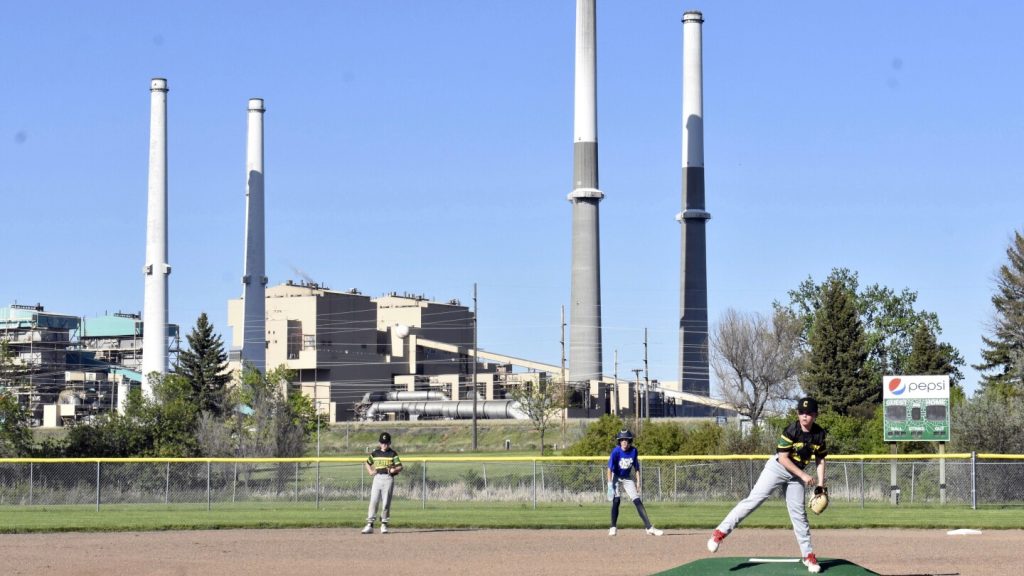The actions taken by President Joe Biden’s administration to potentially accelerate the closure of coal power plants and mines that supply them have reignited Republican accusations of a “war on coal” ahead of the upcoming November election. The focus of this political battle is in the Powder River Basin of Wyoming and Montana, which houses the largest coal mines in the country. The Colstrip Generating Station in Montana, known for emitting high levels of toxic air pollutants, could face closure or expensive cleanup requirements following new rules from the EPA.
Republicans, including Montana Senator Steve Daines, have spoken out against the new regulations, warning of job losses and negative impacts on communities like Colstrip. The issue of coal has historically been a polarizing one, with both Democrats and Republicans expressing concerns over its environmental and economic implications. Coal remains a significant source of employment in places like Colstrip, where workers can earn substantial incomes, making the industry a crucial part of the local economy.
Despite the decline in U.S. coal consumption over the past decade due to factors like natural gas and renewables, the coal industry’s influence remains strong on both a political and economic level. The Biden administration defended its measures against coal as necessary for reducing harmful emissions, improving public health, and addressing climate change concerns with a focus on sustainable energy. However, critics argue that the restrictions could have detrimental effects on coal-dependent communities and industries.
The move against coal has sparked a debate between proponents of environmental protection and those prioritizing economic interests. The data linking pollution from coal plants like Colstrip to various health issues has been a significant concern for public health advocates. While some see the rules as a necessary step towards reducing pollution, others, including Democratic Senator Jon Tester, have criticized them for potentially imposing heavy financial burdens on coal plants like Colstrip.
The clash over coal regulations is not solely a partisan issue, as members from both major political parties have expressed conflicting views on the matter. Some Democrats have opposed what they see as aggressive actions against coal, while Republicans have used the issue as a platform to rally support ahead of the upcoming election. The future of coal mining and power production in regions like the Powder River Basin remains uncertain, with the Biden administration facing pressure from various stakeholders to address the environmental and economic impact of its policies.


